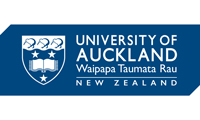
An-Najah National University is situated in an area of poverty and political volatility, so community outreach is crucial. Its Community Pathways Programme has become embedded in the fabric of the institution
The Community Pathways Programme (CPP) at An-Najah National University in Palestine has grown from small beginnings. It started in 2012 as a grassroots community initiative with just eight courses and in 2019 was integrated into the university’s strategic plan, offering 75 community engagement courses.
Abdelkarim Daraghmeh, director of the Centre for Excellence in Learning and Teaching at the university, told attendees at the University of Auckland’s pre-summit event at Times Higher Education’s 2022 Impact and Innovation Summit how important this engagement has been for transforming its local community. “It highlights the significant role we can play in combating poverty and in improving socio-economic conditions in our countries,” he explained.
An-Najah National University is situated in Area C in the West Bank, which comprises many small villages and refugee camps that have limited access to services and electricity. The university has about 2,400 students and 1,200 staff members, meaning it has the human capital to have “good potential to make an impact in the community”, Daraghmeh said.
The CPP aims to strengthen students’ and scholars’ understanding and experience of their community by implementing projects that address their needs. Examples include a cow-tagging programme to control disease as livestock is moved around the West Bank, and engineering students designing plans for Area C villages.
“The projects give learners higher-order skills such as problem definition, time management, scenario-building and negotiation skills,” Daraghmeh said. “The students also get to organise project exhibits with community partners at the end of each semester.” The plan is to move from the current model where the curriculum is adapted to make it more community-connected to one where faculty assess community needs, identify partners and then design course content around this.
There are risks and benefits of both approaches, explained Daraghmeh. “With the newer approach, we engage at an early stage with the community partners but sometimes there is less collaboration or lower acceptance of the value students can add,” he said. “The important thing is to build that voluntary community connection so students can feel their surroundings and get to know the details of everyday life in those communities.”
THE CPP supports the university’s work towards achieving the United Nations’ Sustainable Development Goals. It supports SDG 4, which focuses on quality education, as well as SDG 11, which aims to make cities inclusive, safe, resilient and sustainable.
Daraghmeh offered some words of advice for other institutions looking to replicate the programme. “Do a sector-needs analysis to ensure the projects you integrate into your courses are based on actual community needs. Larger businesses felt they did not need our service, so we refocused our attention on smaller organisations such as kindergartens,” he said. “Deliver quality services that promote and protect the image of your institution.”
Finally, having an ecosystem of support within the university has been crucial. A community centre within An-Najah already supports students in remote areas through scholarships, childcare and food and clothing packages. “Our faculty believes strongly in community service and wanted to do something to help, so we’ve moved it into our university strategy to become a core value,” he added.
Find out more about the University of Auckland.






